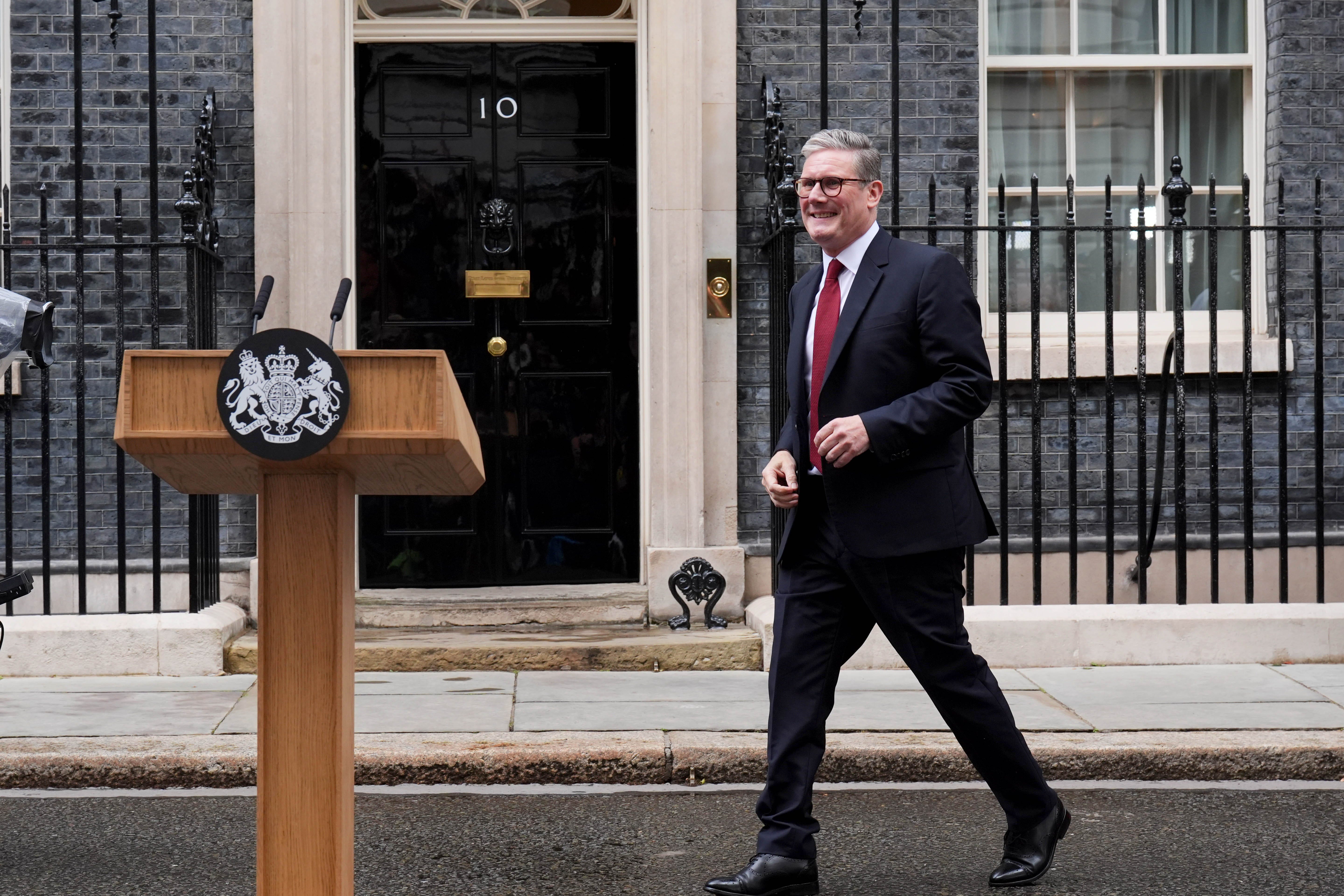Respect and NHS top of ‘change’ agenda, major post-election survey finds
Advocates of a Tory merge with Reform UK are ‘missing basic arithmetic’, More in Common boss Luke Tryl argued.

Your support helps us to tell the story
From reproductive rights to climate change to Big Tech, The Independent is on the ground when the story is developing. Whether it's investigating the financials of Elon Musk's pro-Trump PAC or producing our latest documentary, 'The A Word', which shines a light on the American women fighting for reproductive rights, we know how important it is to parse out the facts from the messaging.
At such a critical moment in US history, we need reporters on the ground. Your donation allows us to keep sending journalists to speak to both sides of the story.
The Independent is trusted by Americans across the entire political spectrum. And unlike many other quality news outlets, we choose not to lock Americans out of our reporting and analysis with paywalls. We believe quality journalism should be available to everyone, paid for by those who can afford it.
Your support makes all the difference.Labour will need to cut NHS waiting times and speak a “language of respect” to keep its voter coalition together, a major post-election survey has found.
Although Sir Keir Starmer entered Downing Street with the lowest vote share of any governing party, a study published on Monday by More in Common and UCL found even those who did not vote Labour believed the party had a “mandate for change”.
Luke Tryl, executive director of More In Common, said this month’s election was the latest in a series of votes that had seen the public demand a change from the status quo after the 2016 Brexit referendum and the 2019 general election.
He said: “2024 is the latest version of the electorate saying we want change, we want something different from the status quo.
“And I think there’s a profound warning in that too that if it’s not delivered this time people will start to look elsewhere as they started to do in this election.”
Delivery itself will not be an antidote to the pervasive feeling that it is not just public services that are broken – but our entire democratic settlement
As to what that change should look like, Mr Tryl said the public had identified cutting NHS waiting lists as the number one practical measure people were looking for, with 63% of people saying that would be their basis for judging whether the new Government was a success.
Lowering the cost of living also scored highly, with 58% saying it would be part of how they judged Labour’s performance in office
But More in Common warned that while the public would give Labour credit if it could deliver practical improvements, delivery alone would not be enough to satisfy people’s desire for change.
Mr Tryl spoke about a feeling of “futility” among the electorate, with recent political upheaval leaving the public feeling “totally exhausted” and that politicians had “basically lost respect for the people who keep the show on the road”.
In a report also published on Monday, More in Common said: “Delivery itself will not be an antidote to the pervasive feeling that it is not just public services that are broken – but our entire democratic settlement.
“The public believe that settlement has been broken by politicians and policymakers who are in it for themselves, mired in sleaze and scandal, and who simply don’t understand the struggles, worries or concerns of the public.”
Mr Tryl added that the Prime Minister’s promise of a politics that “treads more lightly on people’s lives” was possibly his most important pledge.
He said: “There is a real premium on both this Government, but also the Conservatives as they think about how to rebuild, talking a language of respect and thinking about how they can demonstrate respect in their policies and in delivery.”
With no “ideological anchor” uniting Labour’s coalition, Mr Tryl said delivery was key to Labour remaining in power.
For the Conservatives, Mr Tryl said the central problem voters had with the party was that it had become seen as “incompetent”, and not due to any belief that it had become too left- or right-wing.
He also suggested that those arguing for a rightward shift in Conservative policy – in an attempt to attract Reform UK voters – “are missing basic arithmetic”.
Barely a third of Reform voters told More in Common they would have considered voting Tory, with a similar number saying they would consider supporting either Labour, the Liberal Democrats or the Greens.
Merging with Reform might see around two-thirds of the party’s voters opting for the Conservatives, but would also cost the party a similar number of its existing voters.
Mr Tryl illustrated this point by arguing the typical person who voted Conservative in 2024 was not represented by Nigel Farage or Boris Johnson but by former chancellor Philip Hammond.
Meanwhile, More in Common suggested tacking too much towards Reform would “cap” the Conservatives’ recovery by further alienating those who had switched from the party to either Labour or the Lib Dems.
More in Common’s study was based on polling and focus group research of more than 10,000 people in the week after the election and more than 60 focus groups carried out during and after the election.